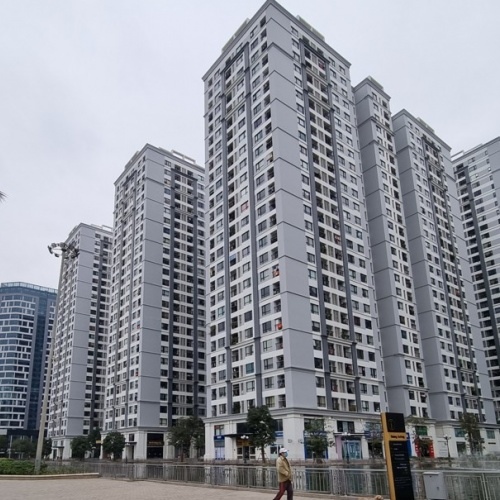|
Property prices in Hanoi, Ho Chi Minh City driven by speculators: experts
Specialists expect that new legislation will help to tighten market control and thus bring prices down.
The rise in housing prices in Hanoi and Ho Chi Minh City shows signs of vested interests, Nguyen Van Dinh, Vice Chairman of the Vietnam Real Estate Association, said on August 1.

An urban area in Hai Ba Trung District, Hanoi. Photo: The Hanoi Times
|
The rise in market prices in recent months is suspicious, Dinh said at a forum on the outlook for Vietnam's real estate sector.
"The increase is definitely caused by a group of people who want to conduct real estate business unethically amid the slow recovery of the market and people's low income," he said.
Dinh pointed out that the stagnant supply of apartments is the main cause of the rise in property prices, as no new projects have been approved in recent years and only second-hand apartments are being transacted.
"There is a shortage of quality real estate. There are also very few affordable units for low-income earners. That means the market structure is in very bad shape," he said.
In April, the Ministry of Construction asked the Hanoi People's Committee to inspect the market and deal with any violations and speculation to address the market's rising prices.
The Department of Housing and Real Estate Market Management (Ministry of Construction)'s Deputy Director, Vuong Duy Dung, believed that greater transparency in the real estate sector is needed.
"If the information about projects, apartments, and houses, buyers, and sellers becomes public, we will be able to deal with market speculation and manipulation," he said.
He cited the fact that many projects were not legal, but they were put on the market anyway. Then it has led to disputes between buyers and sellers.
Dung hoped that with the enactment of laws regulating the property market in August, it would be easier for government agencies to deal with market irregularities.
Forecast on apartment prices
Dung said the new laws will remove administrative bottlenecks for the sector and increase market supply.
Major issues related to land management, capital, bonds, and credit will be resolved, he said.
"According to the laws, information on projects will be published on the ministry's portal and developers' websites, so the market will be more transparent," Dung said.
The new laws will also facilitate the growth of affordable housing, which will bring big changes to the market and drive down market prices, he said.
Sharing the same view, Dinh of the Vietnam Real Estate Association said many projects will resume and be listed in the second half of the year.
"In the short term, real estate prices will fall to their true values. However, they will eventually rise," he said.
"This is because land acquisition is too expensive for developers. Meanwhile, they will have to get appraisals for their financial health."
A study by research firm OneHousing estimates that a total of 22,000 new apartments will be built in Hanoi this year. The number could rise to 24,000 apartments in 2026 and 23,000 in 2025. It will triple by 2030.
The majority of projects will still be located in the eastern and western parts of the city.
Hanoi Times
|